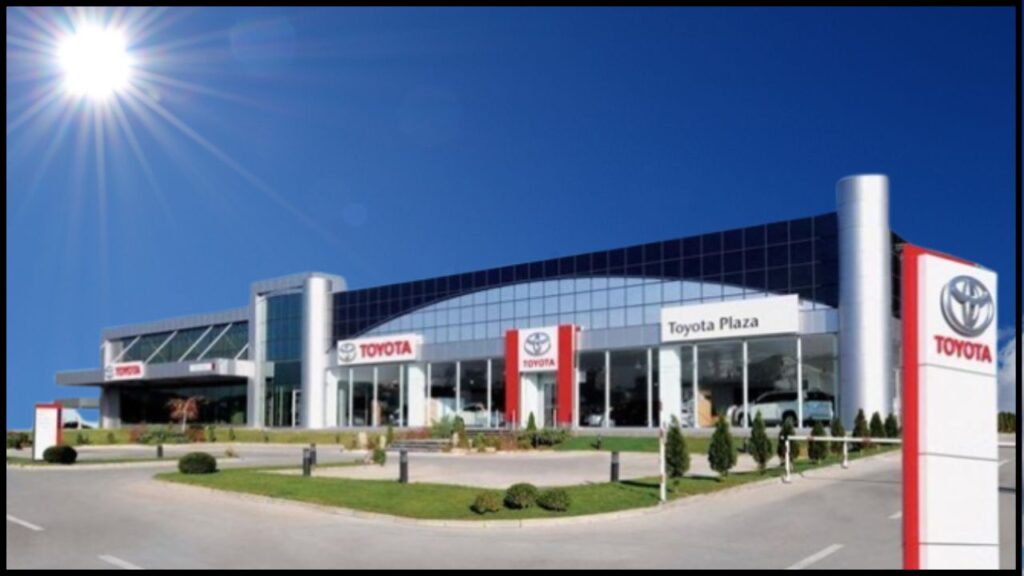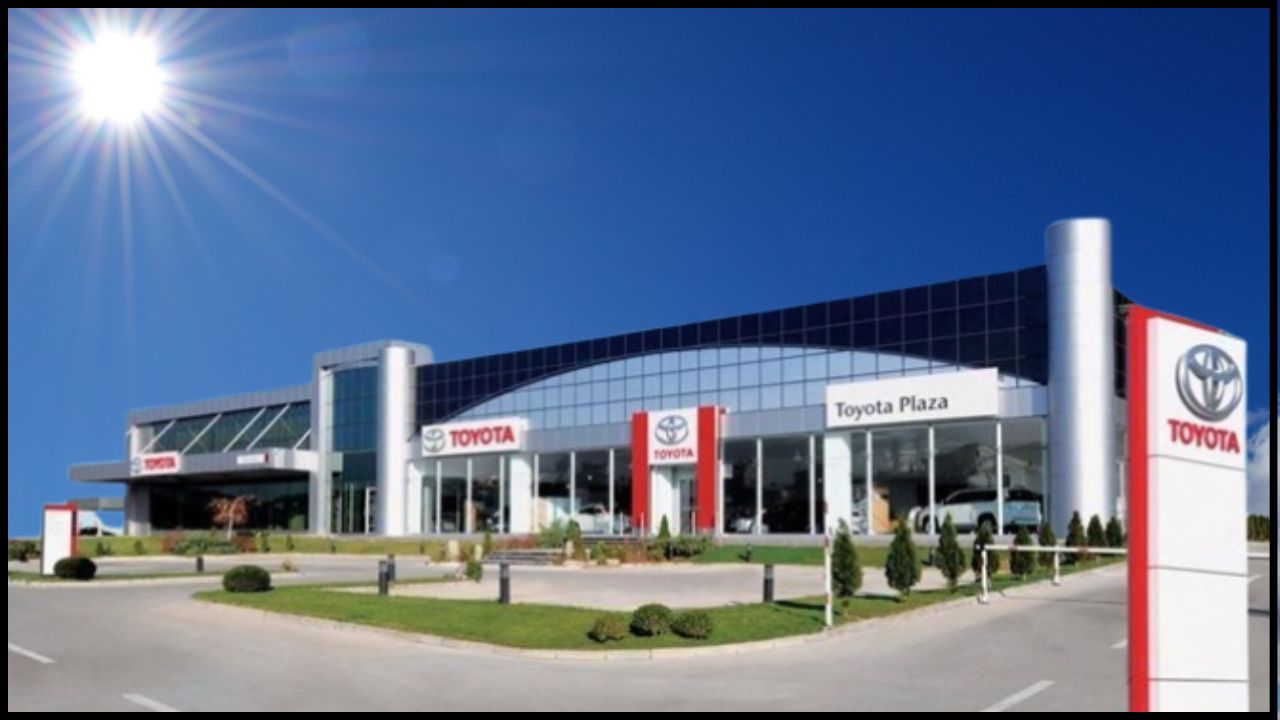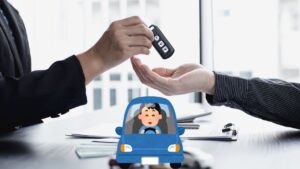Toyota Group companies are intensifying their efforts in artificial intelligence (AI), software innovation, and skill development to stay ahead in the rapidly evolving mobility and technology landscape. These efforts span across their global operations—from Japan to India—and showcase how Toyota is transforming from a traditional car manufacturer into a cutting-edge, technology-driven mobility leader.

Whether you’re a tech enthusiast, an industry veteran, or just curious about the future of smart vehicles and urban living, this article offers an accessible yet deep dive into Toyota’s strategic advancements. We’ll examine how Toyota’s core companies are shaping this revolution, highlight investments and real-world applications, and offer actionable insights into what it means for the future of transportation, manufacturing, and jobs.
Toyota Group Companies
- Toyota Motor Corporation (TMC): Partnered with NTT to invest ¥500 billion (approximately $3.27 billion) into building a smart Mobility AI Platform designed to reduce traffic accidents by up to 30% by 2028. Learn more
- Woven by Toyota: Developing a smart, fully connected city—Woven City—where autonomous vehicles, robots, and smart homes are tested in a live environment. Explore details
- Toyota Systems Corporation: Achieved a 50% decrease in system update times by integrating generative AI through a strategic partnership with Fujitsu. Read the press release
- Toyota Kirloskar Motor (TKM): Promoting youth empowerment and technical education in India through MoUs and Skill Festival 2025, aligned with national development agendas. See more
- Toyota Boshoku Corporation: Leveraging digital twins and AI to optimize manufacturing processes and standardize excellence across global facilities. Dive deeper
The Toyota Group’s Vision: AI + Skills = Future Mobility
Toyota is more than a carmaker—it’s becoming a mobility tech company. The company’s long-standing principles of kaizen (continuous improvement) and monozukuri (craftsmanship) are now being fused with AI, machine learning, and data analytics. The goal is clear: develop smarter vehicles, smarter factories, and smarter people.
Toyota envisions a future where artificial intelligence and software don’t just support mobility—they drive it. Whether it’s self-driving cars, smart traffic systems, or energy-efficient cities, Toyota is making sure both the technology and the people using it are ready for the change.
1. Toyota Motor Corporation (TMC): Building the AI Superhighway
Toyota Motor Corporation has launched an ambitious partnership with NTT to build the Mobility AI Platform, an extensive digital framework set to redefine how vehicles interact with their environment.
- The ¥500 billion (~$3.27 billion) investment targets traffic safety and autonomous driving by harnessing data from millions of vehicles and road sensors.
- Set for deployment by 2028, the platform will integrate with Toyota’s existing safety systems to enable real-time decision-making in vehicles.
- According to Reuters, the system aims to cut accident rates by 30%.
By aggregating and analyzing real-world driving data, the platform can predict and prevent hazards, ultimately enabling smoother traffic flow and reducing emissions. It’s a massive leap from reactive safety to proactive prevention.
2. Woven by Toyota: Testing the Future in Woven City
Woven by Toyota is at the forefront of redefining urban life. Born out of Toyota’s Research Institute – Advanced Development, the organization’s flagship project is Woven City—a real-world test lab located at the base of Mt. Fuji.
- Smart homes powered by clean energy sources are outfitted with AI to monitor wellness and consumption.
- Delivery robots, self-driving cars, and AI assistants are tested daily in a seamless ecosystem.
- The city offers researchers a unique environment where ideas transition from lab to life.
Woven City is designed to simulate the way humans, vehicles, and infrastructure interact. It also acts as a startup incubator, inviting innovators worldwide to test their ideas in a controlled yet realistic setting.
3. Toyota Systems Corporation: Speeding Up with Generative AI
Toyota Systems is transforming the company’s entire digital ecosystem. Through their collaboration with Fujitsu, they have implemented generative AI tools that drastically reduce IT maintenance and system development time.
- Core system updates are now completed 50% faster, reducing downtime and increasing agility.
- Generative AI helps in creating, maintaining, and documenting code, boosting overall productivity.
- Cybersecurity and quality assurance are also being enhanced through AI-powered simulations.
These digital shifts are vital for Toyota’s long-term strategy. Faster internal processes mean faster innovation, allowing Toyota to respond more rapidly to market changes and consumer needs.
4. Toyota Kirloskar Motor (TKM): Empowering Skills in India
Toyota’s operations in India, led by Toyota Kirloskar Motor, are focused heavily on workforce development and technical education. With India’s growing young population and booming automotive sector, this investment is as socially impactful as it is strategic.
- TKM signed an MoU with Karnataka’s Government Tool Room & Training Centre to enhance skill quality.
- Skill Festival 2025 featured hands-on training, workshops, and competitions to spotlight young talent.
- New training modules include hybrid and EV technologies, preparing students for future jobs.
Through these programs, Toyota is not just creating future employees—it’s contributing to India’s national mission of becoming a global manufacturing hub.
5. Toyota Boshoku Corporation: Digital Twins & AI in Manufacturing
Toyota Boshoku is bringing smart manufacturing to the forefront with the help of digital twins, a technology that mirrors physical processes in virtual environments.
- Developed alongside NTT DATA, digital twins help forecast machine failures, optimize factory layouts, and fine-tune operations.
- These models also capture and store the knowledge of experienced technicians, preserving it for future use.
- AI algorithms analyze real-time data to improve decision-making and ensure consistent product quality.
This approach is helping Toyota Boshoku standardize high performance across all its global plants. It’s a powerful blend of tradition and innovation, ensuring craftsmanship doesn’t get lost in the age of automation.
Why It Matters: Toyota’s Long-Term Impact
Toyota’s integrated approach to AI and skill development sets a new industry benchmark. Here’s why it matters:
- Smarter Mobility: AI-driven platforms will make commuting safer, greener, and more efficient.
- Empowered Workforce: Technical education ensures global talent is ready to support advanced industries.
- Operational Excellence: Digital tools improve quality, reduce waste, and speed up production.
From traffic safety to green manufacturing, Toyota is crafting a model for sustainable innovation—one that other global corporations can learn from.
Conclusion
Toyota Group is not just keeping up with technological trends—it’s leading them. By combining AI innovation with skill development across global operations, Toyota ensures its vehicles, employees, and cities are ready for tomorrow. Whether it’s a smart factory in Japan or a training center in India, the company’s efforts reflect a deep commitment to inclusive and intelligent mobility.
FAQs on Toyota Group Companies
Q1: What is Toyota’s Mobility AI Platform?
It’s a large-scale data system built to reduce traffic accidents and optimize driving safety using predictive AI and real-time analytics.
Q2: Where is Woven City?
Woven City is a smart urban testbed near Mt. Fuji, Japan. It’s used to develop and evaluate new mobility and lifestyle technologies.
Q3: How is Toyota helping youth in India?
Toyota Kirloskar Motor is upgrading vocational training through partnerships, introducing EV-focused modules, and hosting national skills events.
Q4: What is a digital twin?
A digital twin is a virtual version of a real-world process or system, used to simulate, analyze, and improve performance.
Q5: Why is AI important to Toyota’s future?
AI supports Toyota’s drive for innovation in autonomous driving, digital manufacturing, and city-scale mobility systems.









No Comments Yet
Be the first to share your thoughts.
Leave a Comment